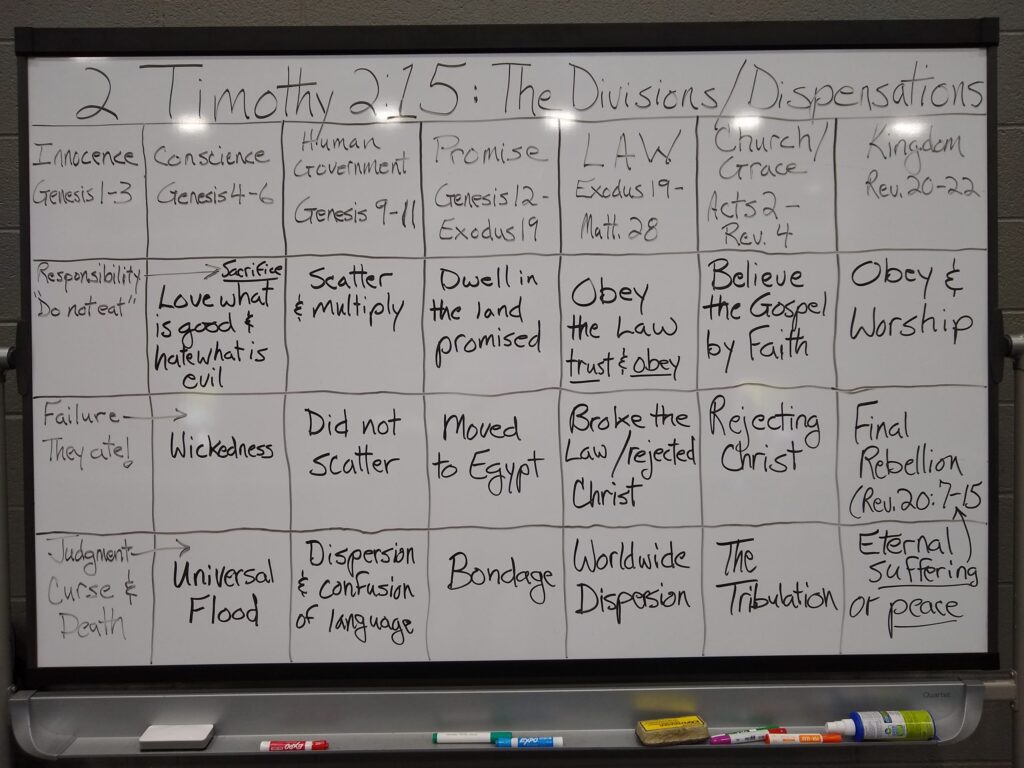
This week in Rightly Dividing the Word was very exciting! We were reminded that our Bible is divided into two main dispensations — Old Testament with 39 separate books, and the New Testament with 27 books. Also, each division is divided into three main groups of books.
The Old Testament is divided into three sections:
1. History — Genesis – Esther
2. Poetry — Job – Song of Solomon
3. Prophecy — Isaiah – Malachi
The New Testament is divided into three sections:
1. History — Matthew – Acts
2. Church Doctrine — Romans – Philemon
3. Prophecy — Hebrews – Revelation
Although the Gospels are in the New Testament, they are the transition books closing out the Old Testament with the life of Christ. The New Testament actually begins with the death, burial, and resurrection of Jesus Christ.
Hebrews 9:12-18: Neither by the blood of goats and calves, but by his own blood he entered in once into the holy place, having obtained eternal redemption for us. For if the blood of bulls and of goats, and the ashes of an heifer sprinkling the unclean, sanctifieth to the purifying of the flesh: How much more shall the blood of Christ, who through the eternal Spirit offered himself without spot to God, purge your conscience from dead works to serve the living God? And for this cause he is the mediator of the new testament, that by means of death, for the redemption of the transgressions that were under the first testament, they which are called might receive the promise of eternal inheritance. For where a testament is, there must also of necessity be the death of the testator. For a testament is of force after men are dead: otherwise it is of no strength at all while the testator liveth. Whereupon neither the first testament was dedicated without blood.
The New Testament was established in the shed blood of Jesus Christ! Matthew 26:28
We have familiarized ourselves with the first 3 dispensations of scripture, and began looking at the 4th.
1. Innocence — Genesis 1-3 from creation to the Fall and expulsion from the garden. The transition from innocence to conscience was the walk of shame out of the garden.
